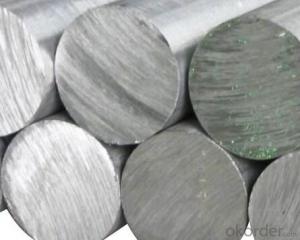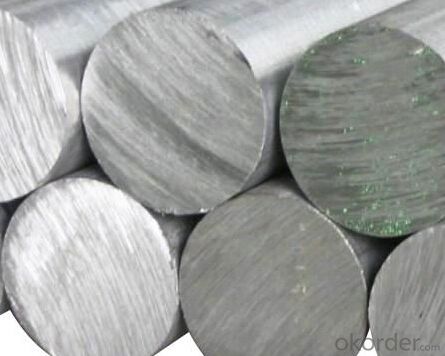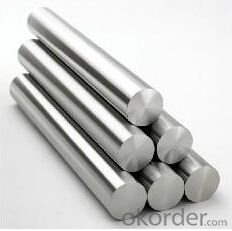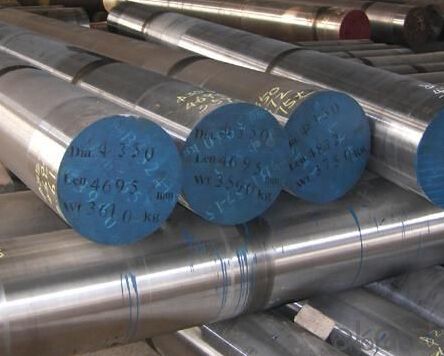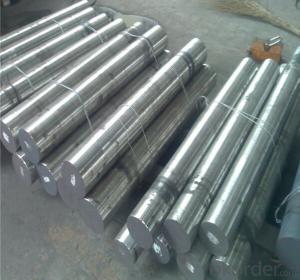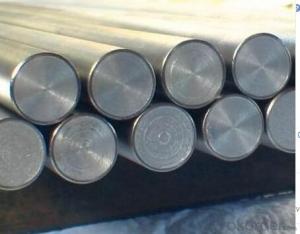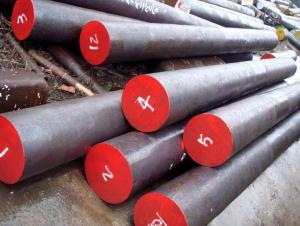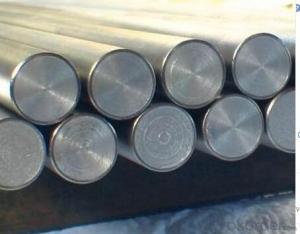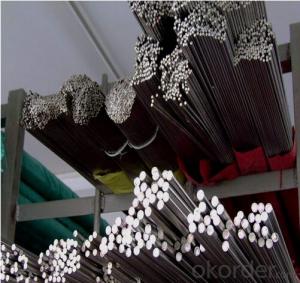Stainless Bearing Steel Grade GCr15
- Loading Port:
- China Main Port
- Payment Terms:
- TT or LC
- Min Order Qty:
- 50 m.t.
- Supply Capability:
- 1000 m.t./month
OKorder Service Pledge
OKorder Financial Service
You Might Also Like
Product Description:
OKorder is offering Stainless Bearing Steel Grade GCr15 at great prices with worldwide shipping. Our supplier is a world-class manufacturer of steel, with our products utilized the world over. OKorder annually supplies products to European, North American and Asian markets. We provide quotations within 24 hours of receiving an inquiry and guarantee competitive prices.
Product Applications:
Stainless Bearing Steel Grade GCr15 are ideal for structural applications and are widely used in the construction of buildings and bridges, and the manufacturing, petrochemical, and transportation industries.
Product Advantages:
OKorder's Stainless Bearing Steel Grade GCr15 are durable, strong, and resist corrosion.
Main Product Features:
· Premium quality
· Prompt delivery & seaworthy packing (30 days after receiving deposit)
· Corrosion resistance
· Can be recycled and reused
· Mill test certification
· Professional Service
· Competitive pricing
Specifications of Stainless Bearing Steel Grade GCr15
1. Dimensional sizes: Thickness: 14~100mm.Length:3000~5800mm,Diameter :14-500mm
2.Chemical composition:
C | Si | Mn | Cr | Ni | Cu |
Equal or less than | |||||
0.95-1.05 | 0.15-0.35 | 0.20-0.40 | Cr:1.30-1.65 | 0.30 | 0.25 |
3. Grade: SAE51200/ GCr15 / 100cr6
4. Heat Treatment:
Soft annealing: heat to 680-720°C, cool slowly.
Hardness after annealing: Max. 241 HB
Hardening: 820 - 850 °C
Normalizing temperature: 840-880°C
Tempering: 540-680°C
5. Surface requirements: Black, grinding, bright, polish
6. Characters:
1) Comprehensive properties
2) Good performance in cutting and processing after spheroids annealing
3) High hardness and homogenization after quenching and tempering
4) High abrasive resistance and fatigue resistance
7. Payment terms: T/T or L/C at sight
Usage & Applications of Stainless Bearing Steel Grade GCr15
Our products have been used in all kinds of areas, such as aviation, aerospace, navigation, nuclear, energy, chemical industry, electronic information, petrochemical, automotive, instrument and meter, Communication ,transportation, and medical instruments, etc. Bearing ring,steel rolling mill ,machinery, 100Cr6 bearing steel ball is widely used in high-speed and low-noise bearing, bicycle, motorcycle, automobile, bags, electronics.
Packaging & Delivery of Bearing Steel GCr15
Mark: Heat No. will be cold stamped and Steel grade, diameter (mm), length (mm), and the manufacturer LOGO and weight (kg) is painted.
Standard seaworthy packing or as customer required
Delivery time: Within 30 days after order is confirmed.
Note:
1. According to national standard (GB) for our products, if not, supply according to national standards (GB) or agreement.
2. We can not only provide electric furnace +LF+VD and electro-slag re-melting (ESR)steel forging materials, but also forging products of piece, bar, etc.
3. Our company is equipped with roll equipment and can provide our customers with roll billets or finished.
4. Please send us your detailed specifications when inquire. We will reply to you ASAP.
FAQ:
Q1: Why buy Materials & Equipment from OKorder.com?
A1: All products offered byOKorder.com are carefully selected from China's most reliable manufacturing enterprises. Through its ISO certifications, OKorder.com adheres to the highest standards and a commitment to supply chain safety and customer satisfaction.
Q2: How do we guarantee the quality of our products?
A2: We have established an advanced quality management system which conducts strict quality tests at every step, from raw materials to the final product. At the same time, we provide extensive follow-up service assurances as required.
Q3: How soon can we receive the product after purchase?
A3: Within three days of placing an order, we will begin production. The specific shipping date is dependent upon international and government factors, but is typically 7 to 10 workdays.
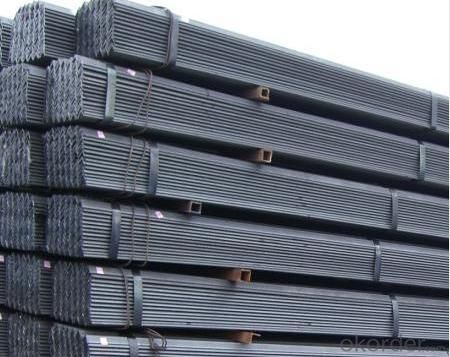
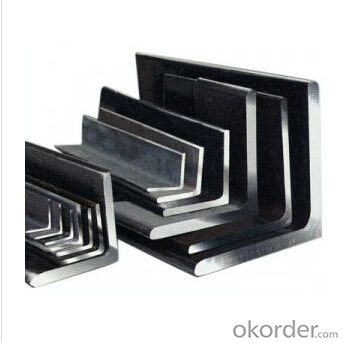
- Q: How is special steel tested for quality and durability?
- Special steel is tested for quality and durability through a series of rigorous processes and tests. These tests are designed to ensure that the steel meets the required standards and can withstand various conditions and applications. One common method used to test special steel is the tensile strength test. This test measures the maximum amount of stress that the steel can withstand before breaking or deforming. It is conducted by applying a pulling force on a sample of the steel until it reaches its breaking point. The results of this test determine the steel's ability to resist external forces and its overall strength. Another important test is the hardness test. The hardness of the steel is a critical factor in determining its durability. This test involves measuring the resistance of the steel to indentation or scratching. The steel sample is pressed against a hard surface, and the depth of the indentation is measured. The harder the steel, the more resistant it is to wear and deformation. In addition to these mechanical tests, special steel is also subjected to various chemical and metallurgical tests. These tests help determine the chemical composition and microstructure of the steel, which are crucial factors in ensuring its quality and durability. For example, spectroscopic analysis is used to determine the exact chemical composition of the steel, while metallography allows for the examination of the steel's microstructure, including the presence of any impurities or defects. Furthermore, various non-destructive testing methods are employed to assess the steel's internal structure without causing any damage to the material. These methods include ultrasonic testing, magnetic particle inspection, and radiographic testing. Ultrasonic testing uses high-frequency sound waves to detect any internal flaws or defects in the steel, while magnetic particle inspection relies on the application of magnetic fields to identify surface cracks or discontinuities. Radiographic testing, on the other hand, uses X-rays or gamma rays to examine the internal structure and detect any defects that may compromise the steel's quality and durability. Overall, the testing of special steel for quality and durability is a comprehensive process that combines mechanical, chemical, metallurgical, and non-destructive testing methods. Through these tests, manufacturers can ensure that the steel meets the required standards and can perform reliably in various applications, thereby guaranteeing its quality and durability.
- Q: Is special steel magnetic?
- Certainly, special steel possesses the ability to exhibit magnetism. The magnetism displayed by steel relies upon its composition and the inclusion of specific elements, like iron, nickel, and cobalt. Special steels that incorporate these magnetic elements are capable of showcasing magnetic properties. Nonetheless, it is important to note that not all forms of steel possess magnetism. For instance, certain stainless steels possess elevated levels of non-magnetic elements, such as chromium, which diminish their magnetic properties. Consequently, whether a particular kind of special steel possesses magnetism or not hinges upon its composition.
- Q: What are the requirements for special steel used in railway applications?
- The requirements for special steel used in railway applications include high tensile strength, excellent wear resistance, and superior toughness to withstand heavy loads and repeated impacts. It should also have good corrosion resistance to withstand outdoor conditions and provide long-term durability. Additionally, the steel should have good machining and welding capabilities for ease of fabrication and maintenance.
- Q: How does electrical steel minimize energy losses in electrical devices?
- Electrical steel minimizes energy losses in electrical devices through its unique magnetic properties and composition. It is specifically designed to have low magnetic hysteresis and eddy current losses, resulting in reduced energy dissipation and improved overall efficiency. The grain-oriented structure of electrical steel aligns the magnetic domains along a specific direction, allowing for efficient magnetic flux flow and minimizing energy losses. Additionally, the thin insulation coating on electrical steel further reduces eddy currents, ensuring minimal power wastage and maximizing the performance of electrical devices.
- Q: Can special steel be used for making aerospace components?
- Yes, special steel can be used for making aerospace components. Special steel, also known as aerospace steel or aircraft steel, is specifically designed to meet the high demands and stringent requirements of the aerospace industry. It possesses exceptional strength, durability, and heat resistance properties, which are crucial for withstanding the extreme conditions experienced by aircraft components during flight. Aerospace components, such as landing gear, engine parts, fasteners, and structural elements, often require materials that can maintain their integrity under high temperatures, stress, and corrosive environments. Special steel alloys are developed to have excellent mechanical properties, including high tensile strength, fracture toughness, and resistance to fatigue, creep, and corrosion. These properties make them suitable for critical aerospace applications where safety and reliability are of utmost importance. Furthermore, special steel can be tailored to specific requirements, such as weight reduction, improved fuel efficiency, and enhanced performance. Through advanced alloying techniques and heat treatments, aerospace steel can be engineered to have desirable characteristics like increased hardness, wear resistance, and dimensional stability. This allows for the production of lighter and more efficient aerospace components without compromising on strength or safety. In conclusion, special steel is a preferred material for making aerospace components due to its exceptional mechanical properties, heat resistance, and corrosion resistance. Its ability to withstand extreme conditions and be customized to specific requirements makes it an ideal choice for manufacturing critical parts used in the aerospace industry.
- Q: How does tool steel maintain its hardness at high temperatures?
- Tool steel maintains its hardness at high temperatures due to its high carbon content and the presence of alloying elements such as tungsten, molybdenum, and vanadium. These elements form carbides, which enhance the steel's ability to retain its hardness even under extreme heat. Additionally, the steel's fine grain structure and heat treatment processes contribute to its high temperature hardness retention.
- Q: How does special steel contribute to the manufacturing of power generation equipment?
- Special steel plays a crucial role in the manufacturing of power generation equipment due to its unique properties and characteristics. Its exceptional strength, durability, and resistance to corrosion and high temperatures make it an ideal material for various components used in power plants, including turbines, boilers, and generators. Special steel's ability to withstand extreme conditions ensures the reliability and efficiency of power generation equipment, contributing to the overall performance and longevity of power plants.
- Q: What is the difference between stainless steel and special steel?
- Stainless steel is a type of steel that contains a minimum of 10.5% chromium content, which helps it resist corrosion and staining. On the other hand, special steel refers to a wide range of steel alloys that are specifically designed and manufactured for specific applications or purposes, such as high-strength, heat-resistant, or wear-resistant properties. So, while stainless steel is a specific type of steel with corrosion-resistant properties, special steel encompasses various alloys tailored for specific needs.
- Q: What are the requirements for special steel used in chemical processing?
- The demands for special steel used in chemical processing are generally stricter compared to regular steel due to the harsh and corrosive nature of the chemicals involved. Some of the key prerequisites for special steel in chemical processing include: 1. Corrosion resistance: Special steel employed in chemical processing must possess a high resistance to corrosion caused by acids, alkalis, and other corrosive chemicals. This is accomplished by incorporating alloying elements like chromium, nickel, and molybdenum, which create a protective oxide layer on the steel's surface, preventing it from reacting with the chemicals. 2. High temperature resistance: Chemical processing frequently involves reactions at high temperatures. Consequently, special steel used in this industry must exhibit excellent heat resistance to maintain its strength and structural integrity under elevated temperatures. This is achieved by incorporating elements such as chromium, nickel, and tungsten, which aid in preserving the steel's stability at high temperatures. 3. Mechanical strength: Special steel employed in chemical processing should possess adequate mechanical strength to withstand the pressures and loads encountered in process equipment. This requirement is fulfilled by incorporating alloying elements like manganese, silicon, and carbon, which enhance the steel's strength and toughness. 4. Weldability: Weldability is a crucial requirement for special steel used in chemical processing as it allows for easy fabrication and installation of process equipment. Special steel with good weldability ensures robust and reliable joints, which are vital for the safe and efficient operation of chemical plants. 5. Resistance to stress corrosion cracking: Stress corrosion cracking is a significant concern in chemical processing environments. Therefore, special steel used in this industry should exhibit good resistance to stress corrosion cracking, which is accomplished by carefully selecting the alloying elements and controlling the material's microstructure. 6. Cleanliness: Special steel employed in chemical processing should be free from impurities and have a low content of harmful elements that could contaminate the process or react with the chemicals. This necessitates stringent quality control measures during steel production to ensure the desired cleanliness and purity. Meeting these requirements guarantees that special steel used in chemical processing can endure the aggressive chemical environment, high temperatures, and mechanical stresses encountered in the industry, resulting in safe and reliable operation of process equipment.
- Q: What are the properties of boron steel?
- Boron steel, also known as boron-alloyed steel, possesses several key properties. It is renowned for its exceptional strength, hardness, and wear resistance. Boron steel exhibits excellent heat treatment response, allowing for improved mechanical properties such as increased hardness and tensile strength. Moreover, it offers good weldability and formability, making it suitable for various fabrication processes. Additionally, boron steel demonstrates high fatigue strength, enabling it to withstand repetitive loading without failure. Overall, these properties make boron steel a valuable material for applications requiring high strength and durability, such as automotive components and construction equipment.
Send your message to us
Stainless Bearing Steel Grade GCr15
- Loading Port:
- China Main Port
- Payment Terms:
- TT or LC
- Min Order Qty:
- 50 m.t.
- Supply Capability:
- 1000 m.t./month
OKorder Service Pledge
OKorder Financial Service
Similar products
Hot products
Hot Searches
Related keywords
